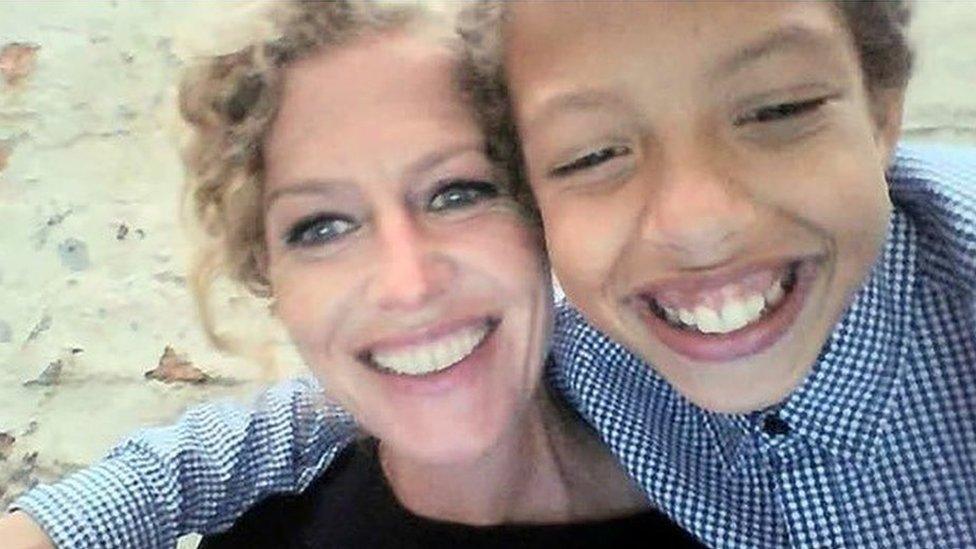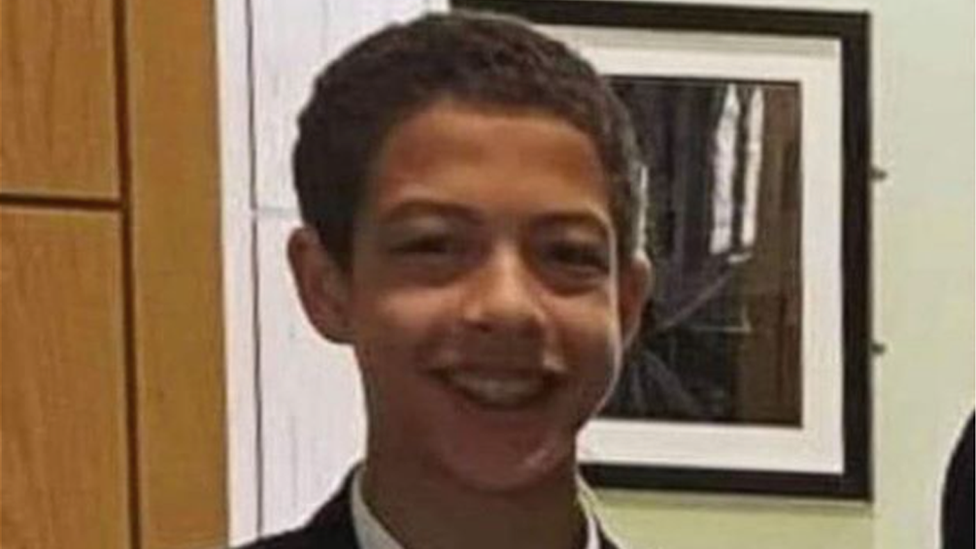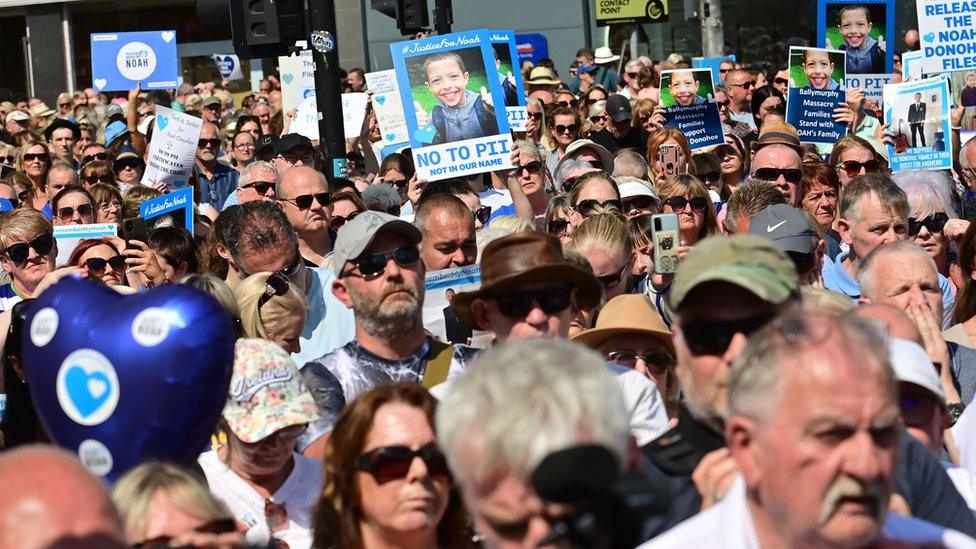Noah Donohoe: Lawyer claims police source leaking sensitive material
- Published

The teenager was found dead in a north Belfast storm drain in June 2020
A lawyer acting for the family of Noah Donohoe has said she believes a police source is leaking sensitive material on social media relating to his death.
14-year-old Noah was found dead in a storm drain in north Belfast in 2020.
The claim emerged at a hearing to assess if police should be allowed to withhold some material during the upcoming inquest.
This comes after the Northern Ireland Secretary signed a Public Interest Immunity (PII) certificate in July.
The certificate will allow some police material relating to the boy's death, and the subsequent investigation, to be redacted.
The use of a PII certificate is opposed by Noah's mother Fiona Donohoe who believes it is an attempt to cover up the circumstances of her son's death.
An online petition in support of all material being disclosed at the inquest has attracted 330,000 signatures.
On Thursday Belfast City Council approved plans to name a bridge in south Belfast after the school boy.
The presiding coroner has the final say on whether the PII certificate can be used at the inquest.
Mr Justice Humphreys said he would not hesitate to overturn the decision by the Northern Ireland Secretary if he found against the need for a PII certificate.
But he said the use of PII certificates was not unusual.
"Applications in respect of PII in inquests are relatively common, both in this jurisdiction and in England and Wales," he said.
At least 119 redactions
On Thursday at a family court in Laganside Magistrates Court, attended by Noah's mother Fiona and aunt Niamh, Mr Justice Humphreys heard legal arguments from both the PSNI and counsel for the Donohoe family.
Three files of police information are at the centre of these arguments - containing around 600 pages and at least 119 redactions.
Counsel for the PSNI said the redactions mostly related to document reference numbers and the grading of intelligence.
"There are some pieces of information that relate to the identification of sources," he said.
"And some information about police methodology and how they process, develop and use intelligence."
'A real risk'
He told the court if the material was disclosed, it would cause "a real risk, not a fanciable risk, but a real risk" to the wider public interest, including national security.
Mr Justice Humphreys said he needed to balance that risk with the need for the open administration of justice.
"I have to decide how the real risk is weighed against the next of kin and wider society's interest in there being open, fair and transparent delivery of justice and the answering of the questions which the inquest is obliged to do."

Counsel for the Donohoe family said while they may be a feature of some Troubles legacy inquests, this case was different.
"There is a very significant amount of community concern, a huge groundswell of support and a need for community of all sides to understand how a 14 year old boy died in the circumstances he did," she said.
She added later: "Withholding material which can safely be disclosed will undoubtedly do more harm than good and will further undermine public confidence in the administration of justice.
"Withholding or concealing information is the antithesis of what we all hope to achieve."
It emerged that the Donohoe family have now lodged three complaints with the Police Ombudsman regarding the PSNI's investigation into Noah's disappearance and death.
The most recent - last month - involves allegations that a police source had been leaking sensitive material regarding Noah's death on social media.
She said: "Here we are seeking to withhold what were being told is fairly benign information, reference numbers, when in fact someone is taking a much more liberal view in terms of disclosing material to the public, which hasn't even been disclosed to us or the coroner's service."
Counsel for the PSNI said none of the material alleged to have been leaked was sensitive. He added that the PSNI was not aware of any leak or any unauthorised disclosure of any undisclosed material.
After the public hearing, a closed session was held to allow the coroner to view the unredacted material.
He said he will give a written ruling on whether the police can redact some of their files within the next 7 days. The inquest is due to start on 28 November.
Related topics
- Published13 August 2022

- Published6 August 2022

- Published27 June 2020
